Q
byd seal how much
BYD Seal's price in Malaysia may vary depending on the configuration and sales policy. Generally speaking, BYD Seal Dynamic EV is priced at RM 163,800, the Premium (Extended Range) at RM 179,800, and the Performance AWD at RM 199,800.
Special Disclaimer: This content is published by users and does not represent the views or position of PCauto.
Related Q&A
Q
What Segment Does BYD Seal Belong to?
The BYD Seal belongs to the D-segment cars. D-segment cars are typically mid to large-sized vehicles, well-known for striking a balance between space, comfort, and performance.
The BYD Seal has a body length of 4,800 millimeters, a width of 1,875 millimeters, and a wheelbase of 2,920 millimeters, offering passengers a relatively spacious interior. The trunk space is also quite decent. Such specification makes it suitable for comfortable long - distance trips and can meet the sufficient space requirements for daily use. Moreover, in terms of performance, the Seal provides different versions with various power outputs. It can provide a smooth daily driving experience and also offer a more exciting high - performance driving feel. Whether for family users or individual users who desire more space and better performance in their vehicles, the D - segment BYD Seal is an appealing choice.
Q
What's the Reslae Value of BYD Seal?
The BYD Seal, a relatively new electric vehicle in the Malaysian market, currently lacks complete data on its resale value, but general resale value for EVs can provide some references. Due to rapid advancements in EV technology, the resale value of electric vehicles typically declines slightly faster than that of comparable internal combustion engine (ICE) vehicles in the first three years—around 50%-60% for EVs versus 60%-70% for ICE cars.
Key factors influencing resale value include battery health (BYD offers an 8-year/160,000 km battery warranty), growing brand recognition (BYD has shown strong performance in recent years), and the maturity of EV infrastructure (such as charging network development). Compared to similar ICE vehicles, the BYD Seal's extended battery warranty and lower operating costs (electricity being significantly cheaper than fuel) may help mitigate depreciation.
For prospective buyers, it is advisable to consider certified pre-owned programs and maintain complete service records to preserve resale value. As EV adoption increases, more definitive resale value data will be provided.
Q
What's the Displacement of BYD Seal?
The BYD Seal is an electric vehicle, so it doesn't use the traditional "CC" (cubic centimeters, used to measure internal combustion engine displacement) as a metric. It provides different versions, such as the Dynamic EV, Premium (Extended Range), and Performance AWD. In terms of the powertrain, the Dynamic EV version has a total motor power of 150kW, a maximum horsepower of 204PS, and a total torque of 310N·m. The Premium (Extended Range) version has a total motor power of 230kW, a maximum horsepower of 308PS, and a torque of 360N·m. The Performance AWD version is more powerful, with a combined system power of 390kW, a combined horsepower of 523PS, and a combined torque of 670N·m. These motors can provide efficient and strong power output, meeting different consumers' needs for speed, range, etc. Moreover, the all - electric drive also complies with the current trend of environmental protection and energy conservation.
Q
What's the PCD Size of BYD Seal?
The PCD (Pitch Circle Diameter) of the BYD Seal is 5×114.3, which means the wheel hub has 5 bolt holes evenly distributed on a circle with a diameter of 114.3 millimeters, matching the standard used by many mainstream Japanese vehicles (such as Honda and Toyota). So, it's easy to find compatible wheel hub options for modification or replacement in the Malaysian market.
Beyond PCD, wheel modifications also require attention to other parameters, including the hub bore (recommended to use OEM-concentric hub rings for precise fitting), offset (ET value), and wheel width to avoid affecting suspension geometry or causing friction. For wheel upgrades, it is advisable to choose EV-rated products that can accommodate the Seal's battery weight and prioritize purchasing through BYD-certified channels to ensure safety and compatibility.
Q
Does BYD Seal Support Apple Carplay?
The BYD Seal doesn't have the Apple CarPlay feature. Apple CarPlay is a system developed by Apple Inc., which allows iPhone users to connect their devices to the in-vehicle infotainment system. Although some car models in the market support this feature, the BYD Seal isn't one of them.
However, the BYD Seal has its own advanced infotainment system. It's equipped with a 15.6 - inch intelligent rotating touchscreen, which can provide a wide range of entertainment and vehicle control functions. This car also adopts a comprehensive set of standard configurations, such as various safety systems, comfortable seats with multiple adjustment options, and a high - quality sound system with 12 Dynaudio speakers. Even though the Seal doesn't have Apple CarPlay, its own infotainment capabilities can still bring users a convenient and pleasant driving experience.
Q
What's the Brand of BYD Seal's Tire?
The original tires of the BYD Seal are usually high-performance tires from Michelin or Continental. The specific tire models might be Pilot Sport EV or EcoContact 6, which are optimized for electric vehicles to match its powerful performance and noise reduction requirements. These tires are characterized by a low rolling resistance to improve the vehicle's range, the reinforced structures to handle the additional weight of EVs, and noise-reducing tread patterns to minimize road noise.
If you need to replace the tires, it is recommended to choose EV - specific tires of the same specifications. Pay attention to the size markings such as 235/45 R19 or 245/40 R20 (depending on the specific vehicle configuration), and also consider the wet - surface grip and wear - resistance index. When purchasing, you can go through BYD's official services or authorized tire dealers to ensure you get products that are suitable for the characteristics of electric vehicles.
Q
Is BYD Seal a Good Choice? Learn the Pros and Cons Here
The BYD Seal is a truly outstanding electric sedan that boasts high competitiveness in the Malaysian market. It's equipped with BYD's advanced e-Platform 3.0 technology and efficient Blade Batteries, offering excellent range performance (up to approximately 570 kilometers under the WLTP standard) and fast charging capabilities, which perfectly meet the local long - distance driving needs.
This car stands out with its remarkable power performance. The dual - motor all - wheel drive version can accelerate from 0 to 100 km/h in just 3.8 seconds. The driving experience is comparable to that of high - performance fuel - powered vehicles. Meanwhile, the electric system provides a smooth and quiet ride.
The interior uses high - quality materials and has luxury features such as a 15.6 - inch rotating central control screen and a Dynaudio sound system. It's also equipped with BYD's DiPilot intelligent driving assistance system to enhance driving safety.
As a pure - electric vehicle, it outperforms traditional fuel - powered cars in terms of maintenance costs, environmental - friendliness, and technology equipment. Although the price is not low, compared with other vehicles in the same class (like the Tesla Model 3), it has advantages in terms of cost - effectiveness and local after - sales service. It's a great choice for Malaysian consumers who are looking for high performance and low vehicle - using costs.
Q
What's the Width of BYD Seal?
The width of all BYD Seal variants is uniformly 1875mm. Vehicle width refers to the horizontal distance between the outermost rigid fixed protrusions on both sides within the vehicle's longitudinal symmetrical plane. This width dimension not only influences the visual effect of the vehicle's exterior, giving it a more imposing and stable appearance, but also affects the interior space layout, indicating a relatively spacious lateral cabin area, providing a more comfortable riding experience for both drivers and passengers, particularly ensuring rear occupants do not feel overly cramped. Additionally, during driving, the width contributes to stability to a certain extent, with an appropriate width helping to enhance the vehicle's stability during high-speed driving or cornering.
Q
What's the Road Tax of BYD Seal? How to Calculate It?
Currently, all electric vehicles registered in Malaysia are exempt from road tax, with the tax exemption period set to expire at the end of 2025. Starting from January 1, 2026, the road tax rates for electric vehicles will be calculated in tiers based on the vehicle's motor power:
The first tier applies to EVs with motor power below 100kW, where the tax increases by RM10 for every additional 10kW. The second tier applies to vehicles with 100kW to 210kW, where the tax increases by RM20 for every additional 10kW. The third tier covers EVs with power between 210kW (exclusive) and 310kW, where the tax increases by RM30 for every additional 10kW.
Taking the BYD Seal models as an example:
The 2024 BYD Seal Dynamic EV, with a total motor power of 150kW, falls under the second tier. Since it exceeds 100kW by 50kW, the road tax is calculated at RM20 per 10kW, resulting in RM100.
The 2024 BYD Seal Premium (Extended Range), with a total motor power of 230kW, falls under the third tier. Exceeding 210kW by 20kW, the road tax amounts to RM60.
The 2024 BYD Seal Performance AWD, with a total motor power of 390kW, also falls under the third tier. Exceeding 210kW by 180kW, the road tax is calculated at RM540.
Q
What‘s the Oil Capacity of BYD Seal's Engine?
The BYD Seal is an electric vehicle (EV), so it doesn't require engine oil but is powered by electric motors.
The three variants of the BYD Seal, namely the 2024 BYD Seal Dynamic EV, 2024 BYD Seal Premium (Extended Range), and 2024 BYD Seal Performance AWD, all run on electricity. They adopt battery systems like the BYD Blade Battery or Lithium iron phosphate battery for energy storage, and electric drivetrains.
For EVs, maintenance focuses more on battery health, charging system checks, and the condition of electric components rather than engine oil changes, making them more environmentally friendly and often require less frequent maintenance compared with traditional gasoline or diesel-powered cars.
Latest Q&A
Q
what bhp is a honda civic type r
The Honda Civic Type R, the poster child for high-performance front-wheel-drive hot hatches, has always had Malaysian petrolheads buzzing about its power. The current FL5 generation packs a 2.0-liter VTEC turbocharged engine churning out 315 horsepower and 420 Nm of torque. This powertrain, tweaked for better boost pressure and cooling efficiency, hits max horses at 6000rpm, while that meaty torque band stretches from 2200rpm all the way to 4000rpm—perfect for both track-day high-rev thrills and everyday street usability.
It’s worth noting that the Type R’s horsepower figures might dip slightly in Malaysia’s tropical heat. Blame it on the higher temps messing with intake air density for the turbo. But Honda’s engineers didn’t sleep on this—they upped the ante with a larger intercooler and improved cooling systems to counteract the heat.
For owners really looking to gauge the performance, keep an eye on wheel horsepower (whp) rather than just the crank numbers (bhp). With front-wheel-drive setups, you’re typically looking at around 15-20% driveline loss. That means roughly 250-270whp actually makes it to the tarmac, and that’s the number that truly reflects what you’ll feel behind the wheel.
Sure, rivals like the VW Golf R or Hyundai i30N come with all-wheel drive, but the Type R carves its own path in corners. Thanks to that front limited-slip differential (LSD) and specially tuned suspension, it serves up a unique handling character that’s earned it serious love on Malaysia’s mountain roads and Sepang Circuit alike.
Q
how to buy a honda civic type r
If you're looking to get your hands on a Honda Civic Type R in Malaysia, you've got two main paths: official authorized dealers or parallel imports. But honestly, I’d strongly recommend going through Honda Malaysia’s official dealer network first. Why? Because that way, you’re guaranteed the car meets local specs and you’ll get that all-important factory warranty – peace of mind is key with a performance machine like this.
First step: hop on Honda Malaysia’s website or give your nearest dealer a ring to check on Type R stock availability and pricing. These bad boys usually come in as fully imported (CBU) units, so keep an eye out for the latest FL5 generation – that’s the one you want. When you’re ready to pull the trigger, make sure you’ve got your ID, driver’s license, proof of income, and other necessary docs handy. You’ll also need to decide if you’re paying cash or financing – most dealers can help with loan options. Oh, and don’t forget to ask if you can snag a test drive first – you’ve gotta experience that VTEC kick in person!
Speaking of which, let’s talk about what makes the Civic Type R such a beast. Under the hood, you’ve got a 2.0-liter VTEC turbocharged engine cranking out a healthy 320 horsepower and 420 Nm of torque, mated to a slick 6-speed manual gearbox – proper driver’s car stuff. The suspension’s been track-tuned, and there’s an active damping system, so it’s setup for folks who live for tight corners and spirited drives. Just a heads-up though – that sporty chassis can feel a bit firm over some of Malaysia’s rougher road surfaces, so keep that in mind if you’re daily driving it.
Another thing to factor in: insurance and road tax for the Type R will definitely be steeper than your average Civic. It’s worth shopping around and getting quotes from a few insurance companies beforehand to avoid sticker shock.
Now, if you’re considering a parallel import, proceed with caution. Make *absolutely sure* the vehicle has a legitimate origin and that there’s local after-sales support available. But at the end of the day, the official channel is still the way to go for most buyers – you’re safer with the factory warranty and knowing the car’s been homologated for Malaysia. Trust me, when it comes to a high-performance car like this, that long-term peace of mind is priceless.
Q
why is honda civic type r so expensive
The Honda Civic Type R is priced at a premium primarily due to its high - performance positioning and unique technical specifications. Under the hood lies a 2.0 - liter VTEC turbocharged engine generating over 300 horsepower, paired with a track - tuned suspension and lightweight body design that truly make it a performance hot hatch. On top of that, the Type R comes loaded with high - end configurations like Brembo brakes, a limited - slip differential, and an aerodynamic package, all of which significantly drive up production costs. In the Malaysian market, being an imported model means the Type R is subject to hefty import duties and consumption taxes, further raising its sticker price. Add in its limited production run and the brand's premium cachet, and this contributes to its lofty pricing. For Malaysian car enthusiasts, the Civic Type R isn't just a car; it's a symbol of Honda's high - performance heritage. Its driving dynamics and track capabilities far surpass the regular Civic, so even with the higher cost, it continues to attract die - hard driving enthusiasts. It's also worth noting that the Type R holds its value pretty well in the used car market, which speaks volumes about its strong market reputation.
Q
what is a honda civic type r
The Honda Civic Type R is a high-performance hot hatch based on the regular Civic, but it's been fully upgraded to deliver an even more extreme driving experience, and it's a hit among performance car enthusiasts in the Malaysian market. Under the hood, it packs a 2.0-liter VTEC turbocharged engine cranking out 320 horsepower, mated to a 6-speed manual gearbox. Throw in a front limited-slip differential and adaptive dampers, and you've got handling that's just outstanding. Styling-wise, the Type R means business with that massive rear wing, wide-body kit, and those triple center exhausts—total aggression on wheels. Inside, the sport seats and red accents scream performance, no subtlety here. What makes the Civic Type R such a big deal in Malaysia is how it blends track-ready performance with daily usability. It'll tear up a track day on the weekend and then comfortably handle your daily commute without breaking a sweat. Oh, and let's not forget—this bad boy once held the front-wheel-drive lap record at the Nürburgring Nordschleife, proving Honda's serious chops when it comes to tuning performance. For Malaysian consumers who love modding and performance cars, the Civic Type R isn't just a car; it's a statement of Honda's relentless pursuit of driving fun.
Q
how much is the new honda civic type r
The all-new Honda Civic Type R has an official price tag in Malaysia ranging from approximately RM330,000 to RM350,000, though the exact figure might fluctuate based on optional extras or ongoing promotions. This high-performance front-wheel-drive hot hatch is powered by a 2.0-liter VTEC turbocharged engine, churning out 315 horsepower and 420 Nm of torque. Mated to a 6-speed manual gearbox and a limited-slip differential, it sprints from 0-100km/h in just 5.7 seconds.
As the performance flagship of the Civic lineup, the Type R carries forward the iconic red-top engine and triple-exit exhaust design. It also comes equipped with Brembo brakes and 20-inch lightweight alloy wheels. Notably, this machine holds the record for the fastest front-wheel-drive lap time around the Nürburgring Nordschleife, a testament to Honda's engineering prowess in engine tuning and chassis dynamics.
For Malaysian enthusiasts, the Type R isn't just a symbol of performance; it embodies Honda's unwavering commitment to driving pleasure. While its price edges close to some European performance cars, the distinctive VTEC soundtrack and immense aftermarket potential continue to draw a dedicated following. If you're interested, we recommend reaching out directly to your local authorized Honda dealer for the latest pricing and to schedule a test drive.
View MoreRelated News

2025 BYD Seal Coming to Malaysia with DiSus-C Adaptive Suspension
JohnAug 13, 2025
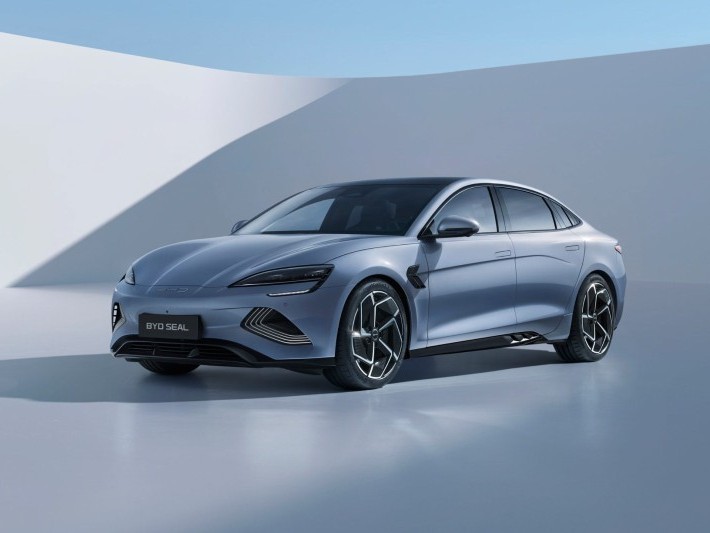
BYD Seal interior design revealed: A fusion of modern technology and luxury
RobertJul 15, 2025
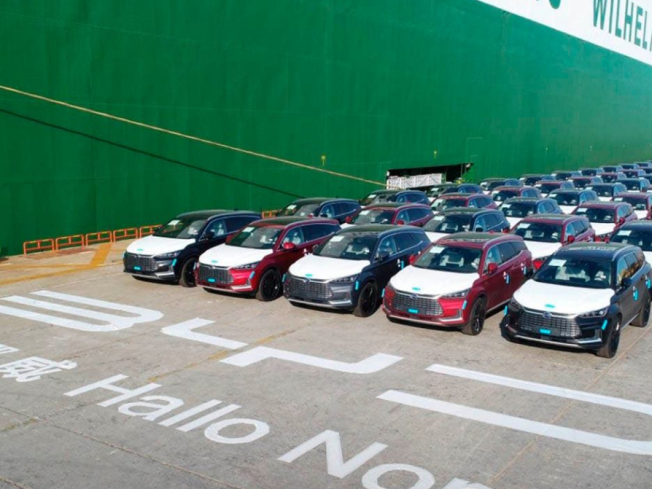
BYD Exports 214K Vehicles in Q1, Top Sales in 7 Markets
RobertApr 30, 2025
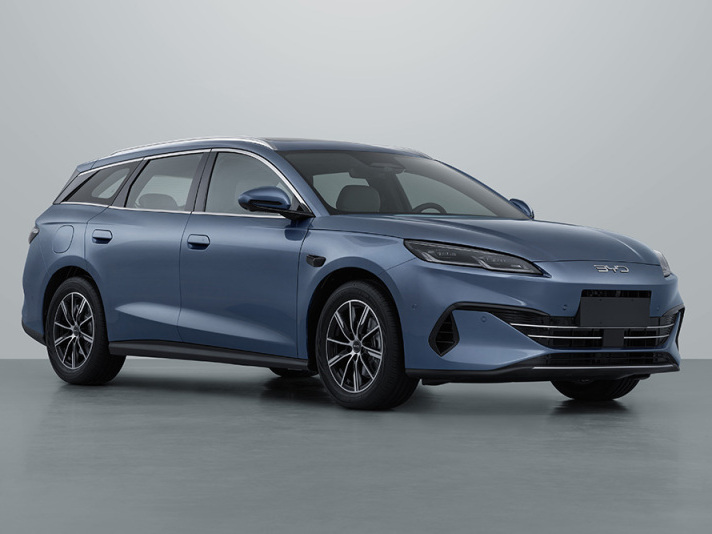
Photos of the BYD Seal 06 Touring Edition Reveal the Brand's Entry into a New Niche Market
JamesMar 24, 2025
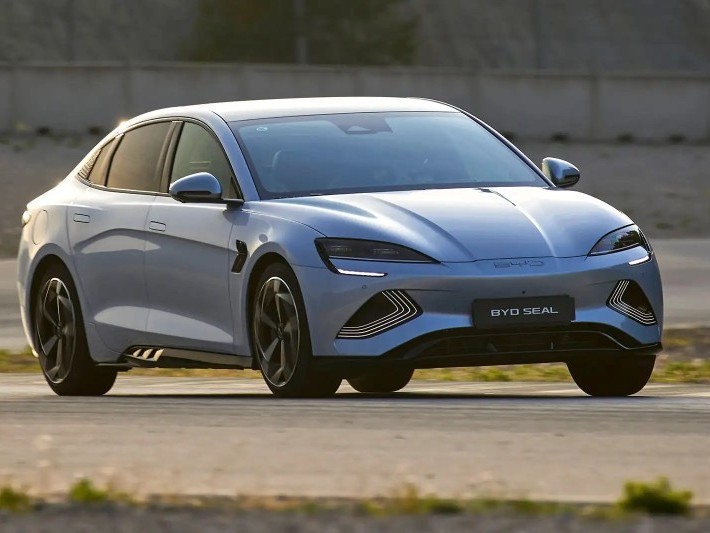
BYD Wins Japan's Annual EV Award Again with Seal
MichaelMar 6, 2025
View More












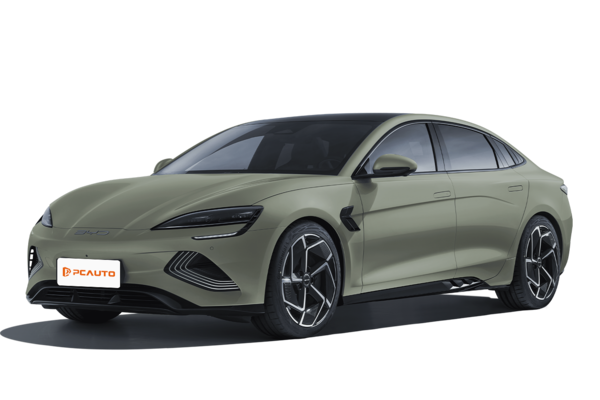




Pros
Cons